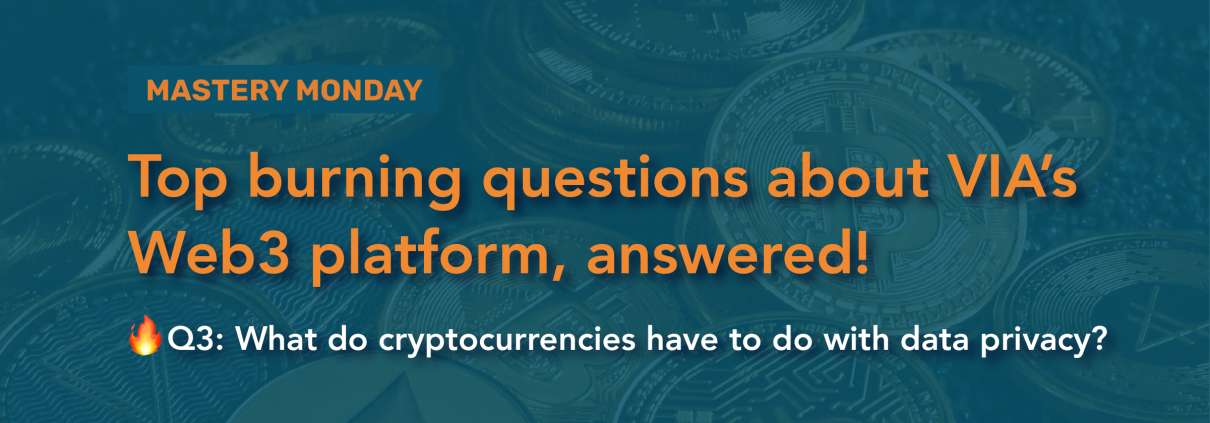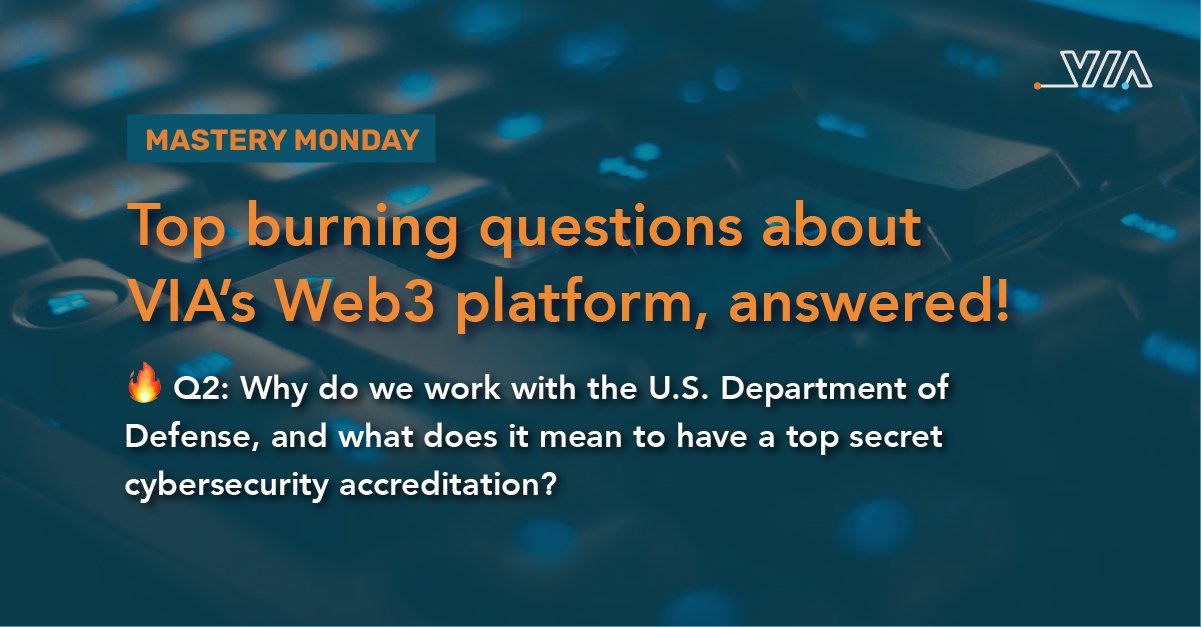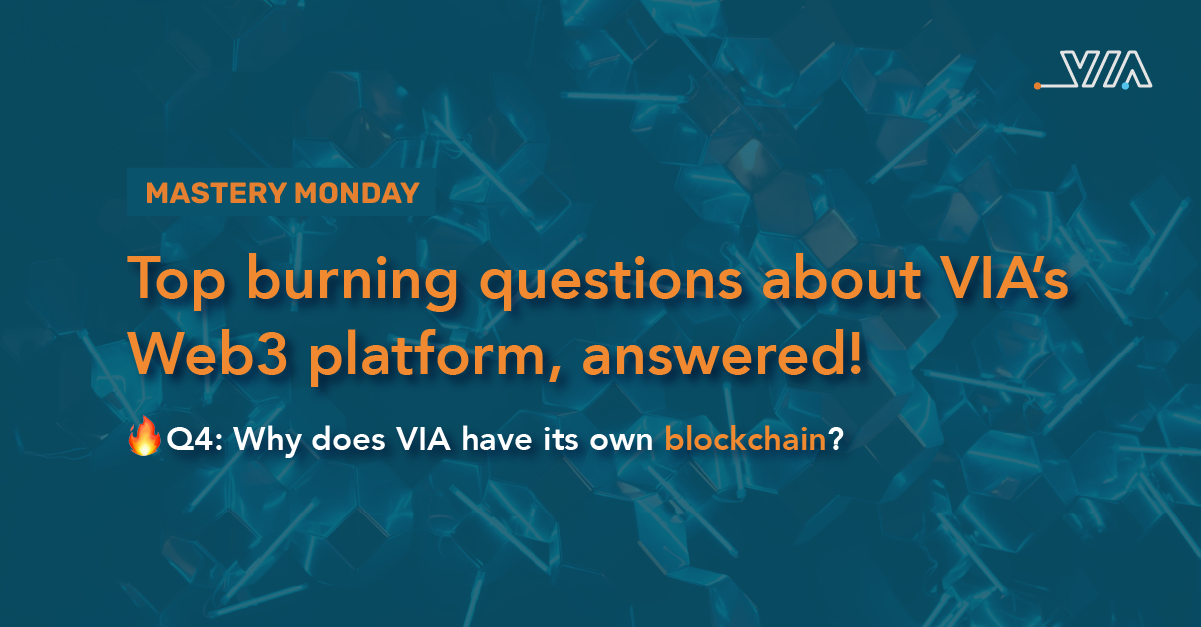Top Burning Questions Q3: What do cryptocurrencies have to do with data privacy?
Question: What do cryptocurrencies have to do with data privacy?
There is no shortage of news around cryptocurrencies today, especially given the collapse of FTX, the crypto exchange company, earlier this year. Now more than ever, a question that we are getting is how cryptocurrencies are relevant to our Web3 data privacy platform.
What astute readers know is that the “crypto” in “cryptocurrencies” is for cryptography. The tech stack in the blockchain ecosystem related to encryption, privacy, and security is evolving faster than the technology of any single company. This is the main reason that VIA is committed to leveraging crypto technologies in our data privacy solutions.
Zero-knowledge proofs (ZKPs) are a good example of this. Long-time VIA blog readers will be very familiar with ZKPs. While their mathematical origin goes back to 1982, the first widespread application came from verifying cryptocurrency transactions. Here’s a quick example:
Imagine a disagreement between Adam trying to buy one bitcoin from Eve. Eve says she sent it. Adam says he never received it. In a traditional banking transaction, Adam and Eve would know each other’s names, bank details, and there would be at least one bank that can verify what happened. In the case of a cryptocurrency like bitcoin, the whole point is anonymous (so Adam and Eve don’t know each other) and peer-to-peer (so there’s no independent middleman to verify) transactions. That’s where ZKPs come in. They are a software mechanism to verify a transaction of a digital asset while maintaining the anonymity of each party, and without the need for a middleman.
That neat trick of verifying a digital transaction between two direct parties and maintaining the privacy of each one is hugely valuable in more than just bitcoin. In VIA’s case we made a choice to leverage ZKPs in energy and data transactions rather than try and invent a new technology. ZKPs are just one of the many digital asset privacy and protection mechanisms we use at VIA from the crypto world.
Of course, don’t just take our word for it. Large, established institutions are formally embracing Web3 technologies.
“The DoD believes that Web 3.0 Blockchain technology can be leveraged to build systems that focus on protecting the data independently of the systems that store, transport, and process it through decentralization.”
That’s a recent quote from the CIO of the U.S. Department of Defense. In the past few months we’ve seen a significant uptick in the number of large companies that are asking us more sophisticated questions about our blockchain and Web3 technologies to embed with their own Web3 teams and initiatives. We see a bright future in blockchain and Web3 for those interested in the best in data privacy technology.







